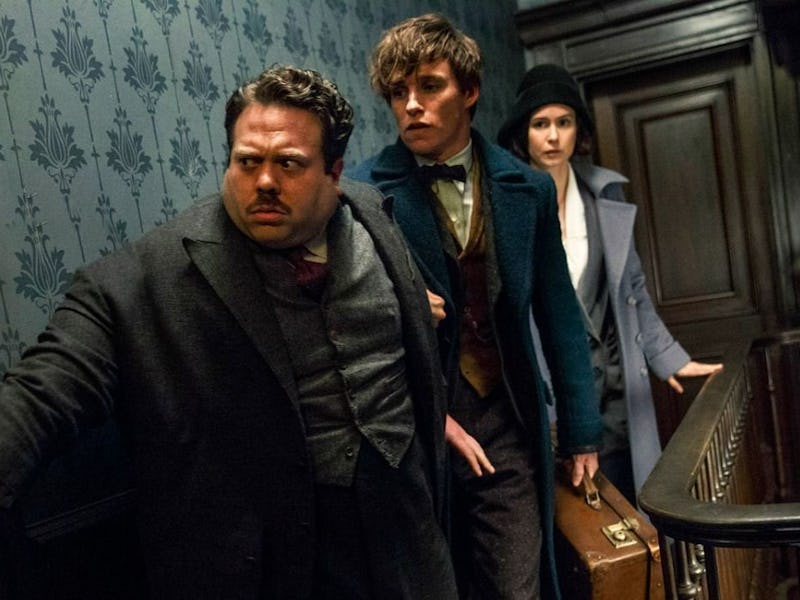Are Wizards Biologically Different Than Muggles?
An overlooked line in 'Fantastic Beasts' suggests just that.

The pernicious myth of racial purity provided subtext for the early installments of the Harry Potter franchise and then drove the conflict in the darker back half of the series. J.K Rowling’s thinly veiled allegory pitted those who believed that full-blooded wizards and witches, aka “pure-bloods,” were superior to those that came from families that included non-magical members. Worst of all — to the purists anyway — were “Muggle-borns,” or magical people born to non-magical families (like Hermione, or Harry’s mother, Lily). As Rowling explained it, the difference between wizards and Muggles was the presence of a magic gene, making the ability to cast spells hardly any different than the ability to dunk a basketball.
That was an important distinction, because it meant that despite their abilities, wizards and witches were very much human. But with a brief line in the new Potter spin-off, Fantastic Beasts and Where to Find Them, that basic equality has been thrown into question.
Early in the movie, one of the titular fantastic beasts brought to America by Newt Scamander (Eddie Redmayne) bites a Muggle named Jacob Kowalsky (Dan Fogler). The bite of a Murtlap — a bald, rat-like creature — is a minor annoyance to wizards; they get a rash and maybe have weakened resistance to some spells or jinxes. But if a Muggle (or No-Maj, as they’re called in the U.S.) gets bitten by one, their reaction is far worse.
With that in mind, Newt makes some sort of magical concoction to treat Jacob’s bite. And as he’s mixing this potion, he notes that he has to take some unusual steps, because Muggles have somewhat “different physiologies” than wizards and witches.
Newt doesn’t expound on the point, but that line alone was certainly eyebrow raising. Throughout the Harry Potter series, there have been plenty of discussions about magical medicine. The Hogwarts infirmary doles out potions and spells to help students heal broken bones — even regrow bones — and clear the symptoms of diseases like dragonpox. But because there weren’t any Muggles in the infirmary, it was never suggested that these antidotes were exclusive to those who carried the magical gene.
Much of Fantastic Beasts is concerned with the subjugation of wizards and witches in 1920s America, and of course, there is no biological difference that could justify any discrimination against any group of people, in real life or fiction. But suggesting that No-Majs and wizards are indeed different does throw a wrench in what is now nearly two decades worth of allegory. Rowling is suddenly drawing a major distinction between the two groups, which complicates seven books and eight movies’ worth of stories.
There was always the suggestion that because anyone could turn out to have magical genes, there was no real difference between Muggles and humans. But now, it would seem that, if they’re biologically different, wizards and witches are the next evolution of humans. And if that’s the case, it turns the Harry Potter saga into a magical X-Men saga; while that series is also a civil rights allegory, it becomes thorny because the mutants are so biologically superior to regular humans. Similarly, if Muggles are so medically endangered by animal bites that simply make wizards feel a bit itchy, there is no doubt who is the superior group.
Again, no amount of biological difference is enough to justify discrimination. History is filled with horrible dictators who preached supposed differences to give moral high ground to their hate speech, but it certainly changes the Harry Potter franchise. Generations of kids fell in love with the idea that wizards live among us, but no one had to grapple with the idea that they were fundamentally different, or even inferior. Thanks to Fantastic Beasts, that idea is now on the table.